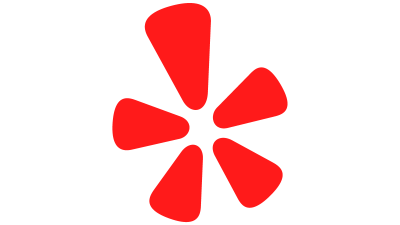I’m not calling you out. I am calling you up!
What if, we were called out on something in our performance or our knowledge base, and instead of feeling defensive or attacked, we leaned into it?
What if we changed our perspective from feelings of inadequacy into feelings of opportunity and gratitude.
What if we looked at the person calling us out through the lens of appreciation? We would appreciate them because they recognized we are capable of more, of being better, and they brought it to our attention.
What if, instead of feeling called out, we found ourselves being called up?
When I look back on my time at the bedside and think of the missed breaks, the frantic pace, the constantly-full-bladder, the stress and the burnout…(please, let’s not forget the burnout!)
I think about the time fatigue would set in and the auto-pilot of muscle memory would kick in, and help carry me through the rest of the shift.
Muscle memory is a blessing and a curse for the experienced care provider.
Patients, physicians, colleagues and students all needing something from you. Right now, or ten minutes ago. You begin to triage tasks and interactions in your head, you phone in what you can, then work hard to keep catastrophe at bay.
Working in this environment and enduring this auto-pilot phenomena on a regular basis can create a constant stress state in your brain. You are riding on catecholamines, a high cortisol level and; in lieu of actually taking in nutrition, you are now, “eating coffee” for sustenance. When this stress state becomes the norm we tend to fall into the, “best I can do right now” approach to care, to learning, to human interaction, to growth, to relationships, you name it.
Students may approach us with questions, which are appropriate, and we dismiss them, or condescend to them, or roll our eyes. Family members may come to us with questions about a family members medication, then come back, over-and-over for more, because they “finally” found someone who will answer their questions. We feel drained. We go deeper into auto-pilot, and avoidance.
The crazy stress factors may be gone now, but we maintain the mindset of self-preservation. We “protect” ourselves from doing extra, from learning extra, from giving extra during these shorter times.
We separate the “have to do’s” from the “should do’s” and the “would be nice to do’s” these are great headings to keep in mind when planning your week, but maintaining balance among the three of those headings can be a difficult dance.
We begin to think of extra knowledge, complementary training, learning new approaches to what we do, as a chore- even a punishment!
I cannot tell you how many times I hear the phrase, “They don’t make us take that class” or “We don’t have to do that” from health care professionals in my classrooms.
I look back and cringe when I recall times when colleagues and students would come to me with a question and, after answering the rudimentary part of the question, I would answer the thoughtful and intelligent follow up question. Occasionally, there would be the part where my knowledge base or comfort level would become weak, and my ego would make an appearance.
“It’s really complicated”, I’d say.
“I’m not sure I can explain it in a simpler way” I’d opine. What an ass I was to say such a thing to someone who is being humble enough to profess ignorance on a subject or seek knowledge.
Sometimes I could see the look of realization on the face of the innocent inquirer, its ranged somewhere between, “Maybe-she-doesn’t-know to WTF?!”
Even worse, their inability to glean knowledge from my BS answer left them feeling like they were the problem, like they had the inadequacy. When in truth, this could have been a learning process for both of us.
They didn’t dare call me out. I had been a nurse for many years, with a lot of experience. They were new or unsure. Who were they to call me out?!
Turns out, they were the appropriate person to call me out. Back then, If I was called out I would feel attacked, ashamed, defensive.
Feeling called out would not have served either of us. Uncomfortable much? Absolutely! But calling me up, telling me they knew I wanted to grow my knowledge base as well, and could we look for resources to gain a better understanding so we can continue to push the unit forward? I would feel respected, empowered and driven to meet that expectation.
Nobody goes into healthcare to be the most “Okayest” clinician, or instructor. Nobody starts out that way. How do we get to the point where we dread learning or being challenged at a job that we worked so hard to get? We get there by avoiding the uncomfortable, the embarrassing, the “I don’t know”.
Many athletes say, “If it doesn’t challenge you, it doesn’t change you”. As healthcare providers we work ourselves like endurance athletes, we push ourselves physically and emotionally every day, yet avoid the discomfort of professional growth and the vulnerability that comes with it.
We have it in us to be great. We also have it in us to be great-er! How do we get there? We accept the challenge and the acknowledgment of being, “Called up”
Out of the Blue is written by Aki Williams, RN


